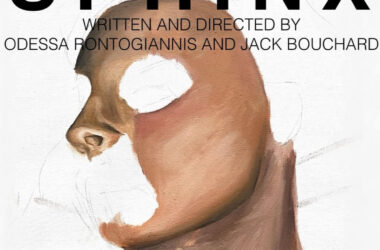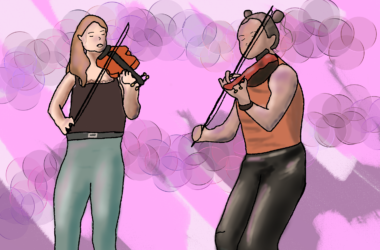Encapsulating one’s thoughts and emotions into words can be as rewarding as it is daunting. Such rewards are monetary in the case of the bi-annual Montreal International Poetry Prize, a competition for poems of 40 lines or less, where the winning poet receives $20,000 and, along with 54 finalists, gets to be published in an anthology by Véhicule Press. Hosted by McGill’s English Department, the prize is accepting submissions until May 15. Then, a judging committee of 11 local and international poets review the submissions and each pick five favourites. Of the 55 chosen finalists, former Poet Laureate of Jamaica Lorna Goodison, this year’s prize judge, will pick the winning poem.
“[The Montreal International Poetry Prize] was founded in 2010 by Asa Boxer, who was an alumnus of McGill,” Eli MacLaren, prize director and associate English professor at McGill said in an interview with The McGill Tribune, who explained that McGill began managing the prize in 2019. “We’re trying to maintain what Asa Boxer started and rooted institutionally, so it survives for a long time.”
American poet Victoria Korth won the Prize’s last cycle in 2020, with her poem “Harlem Valley Psychiatric Center.” This 40-line freeform piece tells the story of her father’s institutionalization, describing the toll of his mental health on their relationship in hauntingly vivid detail.
MacLaren explained that Yusef Komunyakaa, the 2020 prize judge, selected the poem in part because of its “authentic voice.”
“It convinced him that this speaker was writing about something that was really crucial to her, which was essentially the death of her father,” he said.
MacLaren also mentioned that diversity is a key priority for the organizers. “We are trying to get in touch with the international culture of contemporary poetry. And in order to do that, we want to make sure that the prize is open to entrants from all around the world, and also that we have a jury that can judge poetry in diverse ways.”
In addition to the poetry competition, the Prize will host a virtual poetry reading series, Fluid Vessels, a new addition for this iteration of the competition. From January to May, monthly readings from poets across the globe will be held to create a sense of community around the Prize—one that crosses continents while uniting jurors and poets from past and current iterations of the competition.
“We’re going to try to do [the poetry reading series] every year from now on, because it’s been working so well,” MacLaren said.
For example, March’s poetry reading featured Indian poets Nabina Das, Sridala Swami, and Maithreyi Karnoor. Das, one of the 2022 jurors, kicked off the reading with her introspective pieces. Her poem “Thinking Tank,” which was inspired by John Lennon’s “Imagine,” drew heartbreaking contrasts between the terminal consequences of war and the bliss of a world where the only tanks are thinking tanks.
Next up was Swami, a 2020 juror and recent author of Run for the Shadows. Her shortest and most bittersweet poem, “Meditations,” gave shocking insights into her psyche and anxiety, such as how “disorder shapes the leaves down into my rippling mind.” Also unforgettable was “Annotations,” a citation of her youth that pays homage to the gardens, her private playgrounds, she once explored.
Karnoor, a 2017 and 2020 finalist for the Prize, concluded the reading, displaying her artistic range through humorous snippets and poems of epic scale. Her breathtaking piece “A Burden of Beasts” traversed the Himalayas, the staggering behemoths which stretch beyond eye’s reach, indifferent to humanity’s whim despite their dependence. Leaving the audience wanting more.
The Prize remains open for submissions until May 15. Upcoming poetry readings from Canadian, Jamaican, Nigerian, and other poets occur on April 5, April 19, and May 2.









